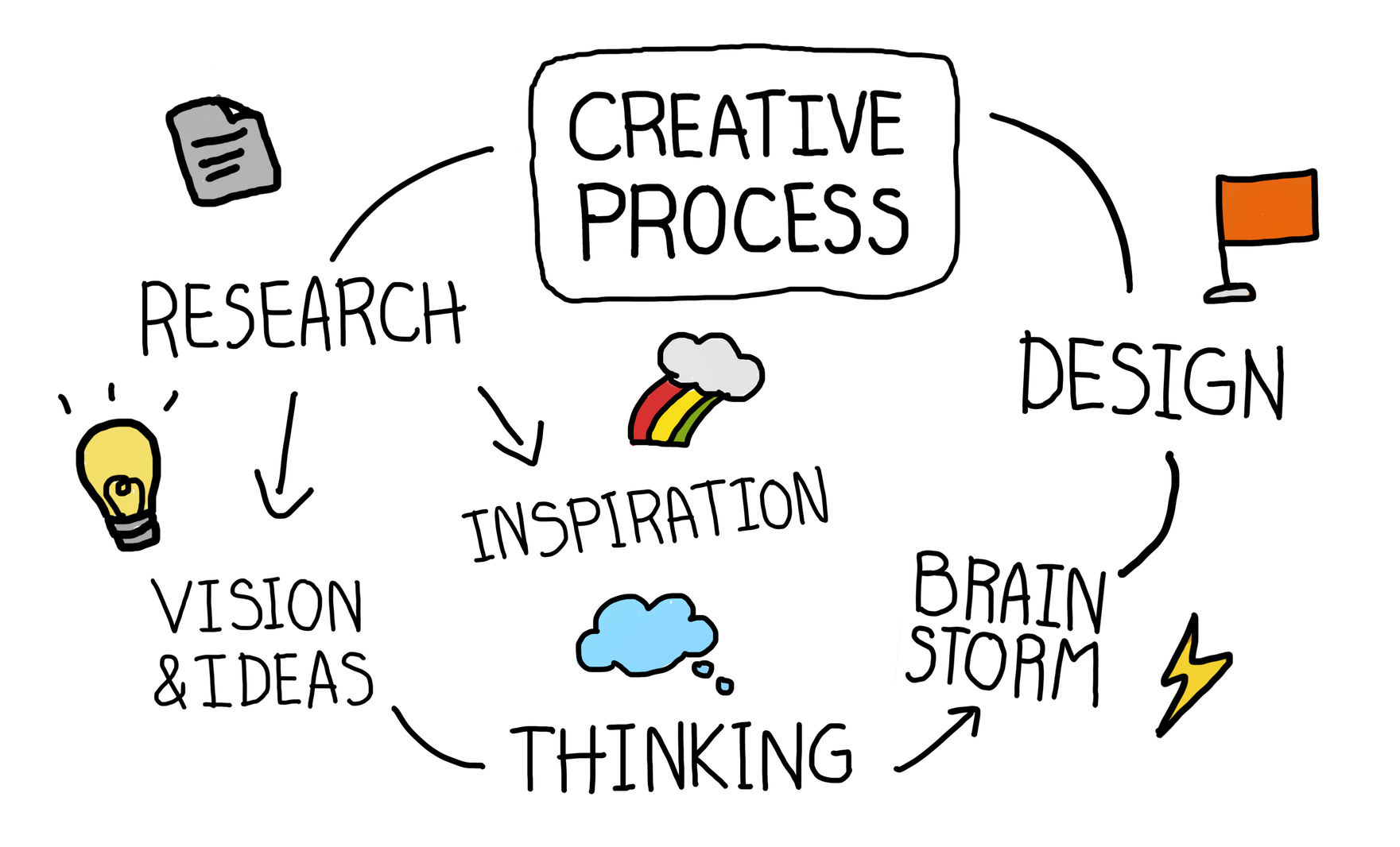New Next Now (June 2016)

We have a terrific collection of articles, books, podcasts, videos and ideas-in-other-forms for you this month. We even spotlight Steven D’Souza, one of our NextSensors! Thanks in advance for checking out this month’s edition of…
Lead with your left brain. In the business world, creativity is key. That’s the counsel of Syed Balkhi (@syedbalkhi) in @HuffingtonPost, who offers nine strategies for bringing a creative pulse to your enterprise. Playing music and hanging artwork can have an immediate impact, but I particularly like this suggestion: talk to lots of people. Balkhi says doing so “will expose you to a new type of vocabulary, new thought patterns, and new ideas.” [Read More Now]
Calling all fashionistas. It seems there’s a lot to learn from the world of fashion. This month, @smithsonian writer Naomi Shavin (@NaomiMaeShavin) spotlights Iris van Herpen, a “high-concept” designer whose “otherworldly” creations are pushing the boundaries of technology and inspiring unlikely collaborations. Recently, Herpen teamed with 3-D printing company Materialise to fabricate clothing designs that resemble fossils, a splash of water, even internal anatomy. “The fertility of these dialogues is that friends in multiple disciplines are exchanging ideas and opening the sense of what the applications can be,” says company representative Vanessa Palsenbarg. [Read More Now]
Do you see PC? Great slide show by Benedict Evans (@benedictevans) on the state of digital devices in the world. “There are now 3 billion iOS and Android computers on earth.” Many stats and trendlines in this report. Thanks Chris Dixon (@cdixon) for the lead to “Mobile Ate The World.” [Read More Now]
It’s more than a rain dance. El Niño is getting harder and harder to predict, says meteorologist and writer Eric Holthaus (@EricHolthaus) via @ensiamedia. But a new data set called CHIRPS is bringing together an unprecedented amount of global rainfall data to provide an “early warning system” for worldwide drought, particularly in rural communities that rely on adequate rainfall for food, water, and economic stability. “Thanks to CHIRPS and other technologies, we can now anticipate drought emergencies,” says Holthaus, who reports that early detection will prove invaluable in preparing food aid and providing insurance compensation to affected areas. [Read More Now]
Can you name the world’s deadliest animal? From STAT (@statnews): Mosquitoes kill 725,000 people a year, according to a list from Bill Gates. They are the world’s deadliest animals. Eric Boodman (@ericboodman) reveals much more in the full story. [Read More Now]
Learning your way forward. When Fareed Zakaria (@FareedZakaria) speaks, we should all take a listen. The acclaimed journalist spent some time with @bigthink to discuss the role of skills in tomorrow’s workplace. It’s not good enough to simply have skills, he says; we must be willing to continually learn and grow and broaden our expertise. Although many employers still rely on university degrees as the “single best sorting mechanism” for evaluating job applicants, he believes companies could begin to place more value on those who “demonstrate a capacity to acquire [new skills]” through alternative means, such as online course accreditation and independent training. If that happens, Zakaria says, employees might realise that “what [they] are being paid for is really outcome related.” [Read More Now]
Innovation… or regression? NYT (@nytimes) correspondent Neil Irwin (@Neil_Irwin) takes a look back at the last 150 years of American history and asks: “What was the greatest era for innovation?” Certainly the 1920s introduced electricity, the telephone, and the automobile, and by the 1970s nearly everyone owned a television and could enjoy the luxury of air travel. But it’s hard to discount the innovations of today: the Internet, email, mobile telephones and text.” How that stacks up against the advances of yesteryear,” Irwin writes, “is the great question of whether an era of innovation remains underway, or has slowed way down.” [Read More Now]
It’s electric! Spotted by Erik Brynjolfsson (@erikbryn): “Tipping point: Japan has more electric car chargers than gas stations.” Tyler Cowen’s report for Marginal Revolution (@MargRev) leads to the full and fascinating story on this written by Nikki Gordon-Bloomfield (@aminorjourney) on Transport Evolved (@transportevolve). [Read More Now]
Make a decision. Big decisions can be scary, and realising you’ve made the wrong one is usually even worse. That’s certainly true for entrepreneurs who have to navigate increasingly crowded waters with no clear blueprint for success, says Steve Tobak (@SteveTobak) for @Entrepreneur. That’s why he urges young entrepreneurs to consider three key factors: (1) risk, (2) opportunity, and (3) expertise. Tobak particularly touts the value of starting out in the corporate world: “You get to learn and gain experience on the job, and get paid in the process.” [Read More Now]
What’s booming in Beijing? China is on the rise—and might already be giving Silicon Valley a run for its money. That’s the view of Shopkick (@shopkick) founder Cyriac Roeding (@cyriac1), who spent three weeks getting up close and personal with the Chinese start-up world. Roeding says Chinese start-ups are faster, but they’re also currently driven too much by the “get rich fast” promise. Still, he believes there is much to be learned from the authenticity of Chinese entrepreneurs: “Get to the core of it, the true entrepreneurial endeavour, the obsession with the product and the company, come hell or high water.” [Read More Now]
She’s fit to lead. Charlie Rose (@charlierose) has an insightful interview with Sara Blakely, the founder of @SPANX. Proof again that, with the right person, you can learn a great deal about leadership in less than 10 minutes. [Read More Now]
It’s a cosmic achievement. In 2014, the European Space Agency made history when it successfully set down a robotic lander on the surface of a tiny comet travelling 135,000 km/h through our solar system. In a new @BBC_Future documentary, Philae Lander manager Stephan Ulamec recalls the years of meticulous planning and precise execution needed to see the mission through. “Patience is something you have to bring with you if you want to work in the space business,” he says. But the reward makes it all worthwhile. “This will keep us busy for weeks, for months, and maybe, at the end, for years.” [Read More Now]
Want to read something really scary? “People watch Netflix more than they hang out with their friends, exercise, and read — combined” by Nathan McAlone (@nmcalone) for @businessinsider. Thanks Olivia Sterns (@OliviaSterns) and Aldo Barragan ™ (@un_tal_aldo) for helping us find this. [Read More Now]
Buckle up for the future. In the world of auto design, every year brings fresh ideas and innovations. Scott Collie (@CollieScott), for @gizmag, reveals one enterprising company that is literally opening new doors in 2016. Moscow-based automaker Mirrow recently unveiled its futuristic Provocator city car concept, which boasts a unique design feature: a single rear entry door with a centre aisle. Collie writes that the Provocator “makes it easy for passengers to get in and out,” and its square-like frame and flexible interior space allow for industry-specific configurations, such as taxis and catering vehicles. [Read More Now]
Here’s our fav quote for the month. The reality is that we live in an age that works against poetry. Poetry is an act of attention and we’re in a time where having an attention deficit is the norm. We’re bombarded with images and information, but images and information are not knowledge—and they’re certainly not poetry. — Carol Muske-Dukes (@carolmuskedukes). She is the Poet Laureate of California [link]. Spotted 20 May 2016 on @PageADayCal.
Good job, Steven! Our final post this week comes from one of our very own NextSensors, Steven D’Souza, who urges people to embrace the unknown. An international educator and founder of Deeper Learning, Steven (@cbcsteve) is also the co-author of Not Knowing (with Diana Renner) [link]. In a recent podcast interview, he talked about his book, which explores the role of uncertainty in the business world. Our culture places business leaders in “an impossible situation,” he argues, given how much we look to them for all the answers. But D’Souza believes leaders can find new ways to accept the unknown: “One of the challenges of leadership is making more space for that ability to change opinion [based] on valid data, to have humility, to challenge our own perspectives, but also [to have] the confidence to go forward.” More great work by the folks at @innovecosys. [Read More Now]



